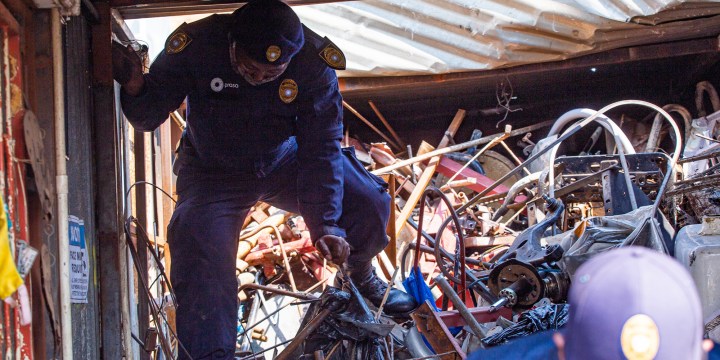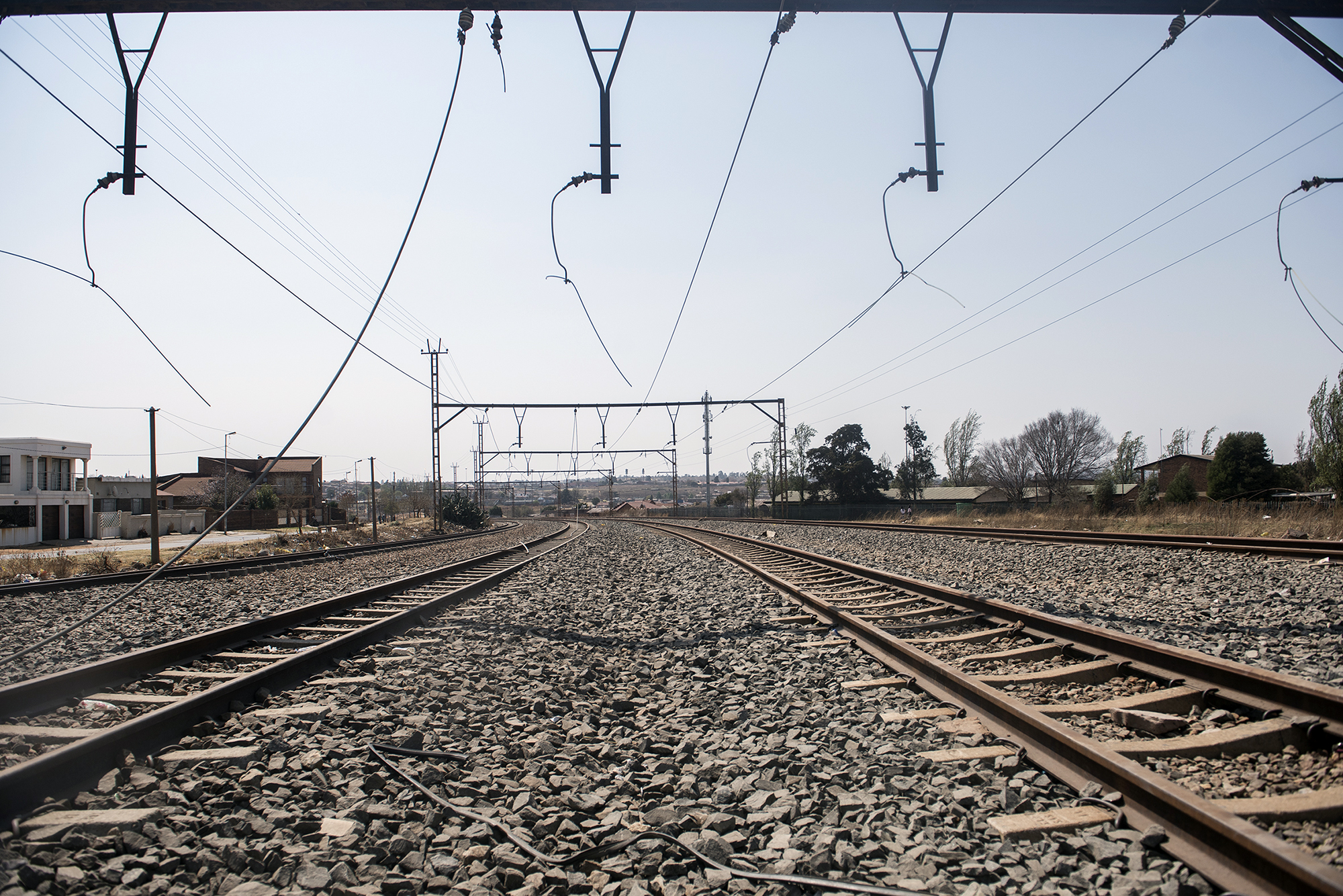CABLE PIRATES
Metal theft — the net could close if new draft policy is implemented

Cable theft has been a stumbling block to the country’s economic growth and now several government departments are putting their heads together to tackle a problem that has been crippling essential services such as railways, electricity and telecommunication services.
Failing power stations, delayed trains, faulty telecommunication grids and damaged public facilities have had a detrimental impact on public services and all have a common thread — copper cable and metal theft.
Now the Departments of Trade, Industry and Competition (DTIC), South African Police, Departments of Mineral Resources and Energy, Public Enterprises, and Transport have issued a government gazette draft policy open for public comment, by Ebrahim Patel, Minister of Trade and Industry to address the theft of infrastructure metals.
The draft policy proposes a six-month prohibition of the export of scrap and waste metal including copper cable. It also calls for a permit system for the export of semi-processed metal products.
Other measures include a registration system for scrap metal buyers and sellers, policing and law enforcement and limitations at ports and border posts used for trade, alongside changes in legislation that create difficulty in stolen copper and metal trading.
If implemented, South Africa will be part of an international response to metal theft. The prohibition on copper scrap exports has also been adopted globally by countries such as Ghana, Kenya, Rwanda, Madagascar, Argentina, Guatemala, Jamaica, Kazakhstan and Tajikistan, while 17 other countries have implemented quotas and licensing requirements, with 13 countries imposing taxes.
“The measures were developed following sustained damage to public infrastructure from criminal theft of electricity cables, power pylons, railway tracks, traffic lights and manhole covers that have reached crisis levels. Criminals are targeting public infrastructure that taxpayers have invested in to expand service delivery to communities across the country,” the DTIC said in a statement.
Thieves have monetised metal by stealing from source, selling it to recyclers who process and purify the metal by separating it and then sell it to mills who further process it into finished products such as bars, sheets and wires. Once complete, these are sold to manufacturers that use them for products such as tools, cars, and computers, among other goods.
Earlier this year in the State of the Nation Address, President Cyril Ramaphosa said the damage to vital resources was enormous, promising decisive steps through improved law enforcement and further steps to address the sale and export of scrap metals.
Copper theft alone has cost the stretched South African economy more than R45-billion annually, a study by Genesis Analytics found. According to the DTIC, Transnet’s cable theft statistics have shown 123 attacks with almost 40km of copper cable stolen from the country’s rail infrastructure in April of this year alone. Annually, these numbers increased from an average of 120km to 724km of cable stolen, with incidents climbing from fewer than 2,000 to 4,500.
A combination of the Covid-19 pandemic and global copper prices reaching record highs – ranging between $6,000 and $8,000 (about R100,00 to R130,000) per ton – have contributed to the spike in cable theft, which is detrimental to essential services such as metro rail services that are relied on by millions of commuters.
Read in Daily Maverick: Infrastructure under attack: Criminals ratchet up railway violence, says Transnet
Congress of South Africa Trade Unions has previously said cable theft was also affecting its workers as, “continuous train delays due to cable theft result in hundreds of thousands of workers being late for work or not able to make it to work. This often results in docked or reduced wages for them, reduced hours and work productivity, and an overall depressing effect upon economic growth, people and communities”.
The Passenger Rail Agency of South Africa forks out about R1-billion a year to protect its infrastructure, the group CEO David Mphelo said earlier this year.

Overhead railway cables hang suspended after thieves cut them off for cash for scrap at the Phefeni train station in Soweto. Photo / Shiraaz Mohamed
Transnet CEO Portia Derby also shared with Parliament that the rail company had lost 1,500km of cables as a result of theft in the 2021/22 financial year as compared to 128km in 2015. Transnet staff have also been players in the increased theft, though most was due to outsiders who are able to sell the copper for R2,000 per kilogram.
Read more in Daily Maverick: “Transnet and Prasa fork out billions to combat theft and vandalism”
Meanwhile, electricity cable theft has added to the increased bouts of rolling blackouts, with some areas going for days without power due to infrastructure damage, causing much outrage in communities. The City of Johannesburg has been hit with more than R14-million in cable theft in the 2020/21 financial year alone, this being a great stumbling block to the City’s energy development.
Read more in Daily Maverick: “Joburg council has a plan to fix power infrastructure and find new energy sources: ‘There are options out there’ ”
“There is growing public outrage at the damage that such theft does to South Africa’s economy through the additional cost of repairing and replacing damaged infrastructure, the inconvenience to workers and commuters from rail disruptions, the financial cost of electricity disruptions to businesses of all sizes, and the safety risk to our communities and especially children when criminals damage and leave behind exposed live electricity cables,” DTIC said. DM
Members of the public and interested/affected parties are invited to submit their written representations and comments regarding the Draft Policy and the draft directives and notices within a period of 21 (twenty-one) days by email to: [email protected], or hand delivered: at 77 Meintjies Street, Block A, 1st Floor, Sunnyside, Pretoria.














Defund the SAPS VIP protection unit and redeploy the staff to proper policing duties such as metal theft prevention. It seems that the only threats our ANC politicians face are from within their own ranks, which shouldn’t be the public’s problem.
Why has it taken so long?
Actually silly question
They only move fast when their fingers are in the till. The ANC incompetence beggars belief
The remedy seems okay. However, the initial purchases go through the scrap dealers. I feel that the scrap dealers pay the police to look the other way. Maybe, the hawks should do a lot of investigating on what actually is in the scrap yards. (without notifying the local police). Please note that not every container exported is checked by customs. (In fact the checked containers inspected constitute a very small percentage of all the containers). So I fail to see that the law will have any teeth. A new company can be formed to export the metals. The manifests can state numerous different items in the container so it won’t work.
Hello, where have the government departments been the last 20 odd years? Now that their families and contacts have all enriched themselves they are waking up to the devastation that’s been caused to what was one of the most efficient rail systems in the world.